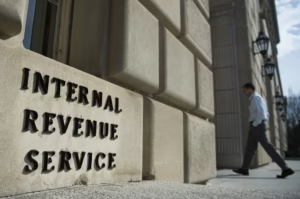Before the end of August, Corporate America will have repurchased almost $1 trillion worth of its own stock at a historic pace.
The overall effect of President Trump’s major measures will be to further exacerbate the trend, even if none of his policies specifically encourage share buybacks. This is in line with the forecasts of Gavekal Research, which says that more stock repurchases will occur in the future, adding to the current bull market’s tailwind.
Why is this the case? The first and most compelling factor is an indirect result of the One Big Beautiful Bill Act, which was passed earlier this summer, according to a note sent to clients on Monday by Tan Kai Xian, Gavekal’s U.S. analyst. Higher corporate earnings in 2026 are probably going to result from the 100% bonus depreciation for factories and equipment, which was implemented to encourage capital expenditure.
Businesses are more inclined to borrow money to finance buybacks when profits increase. This is because “undistributed earnings reduce debt-to-equity ratios by increasing shareholder equity.” Managers frequently respond by increasing leverage through debt issuance and share repurchases in order to maintain desired capital structures. Management teams will be much more motivated to borrow money and repurchase stock as a result of the recent decline in corporate leverage.
Since COVID, U.S. debt-to-equity ratios have decreased.
The Gavekal analyst stressed that evidence of a slowing economy and political pressure on the Fed to loosen monetary policy might further lower borrowing costs and encourage additional share buybacks.
He argued that Trump’s “America first” investment policy may restrict the options for businesses to venture abroad and lessen incentives to participate in the economies of foreign rivals or enemies, taking a step back and considering the bigger picture. Additionally, this might encourage more share buybacks.
The more stringent immigration policies of the Trump administration might also affect businesses’ desire for buybacks. In 2025–2029, net immigration is predicted to decline precipitously, lowering labor force and population growth projections. Reduced prospects for long-term expansion for American businesses would discourage them from investing domestically, making share buybacks (or dividends) a more desirable method of capital deployment.
According to Tan Kai Xian, a declining profit forecast may force businesses to rationalize their balance sheets with additional buybacks unless the present AI investment surge produces significant productivity benefits.
Gavekal’s scenario is primarily at danger from longer-term bond yields BX:TMUBMUSD30Y increasing in response to the current government’s policies. This would deter businesses from taking out loans to buy back their own stock.





